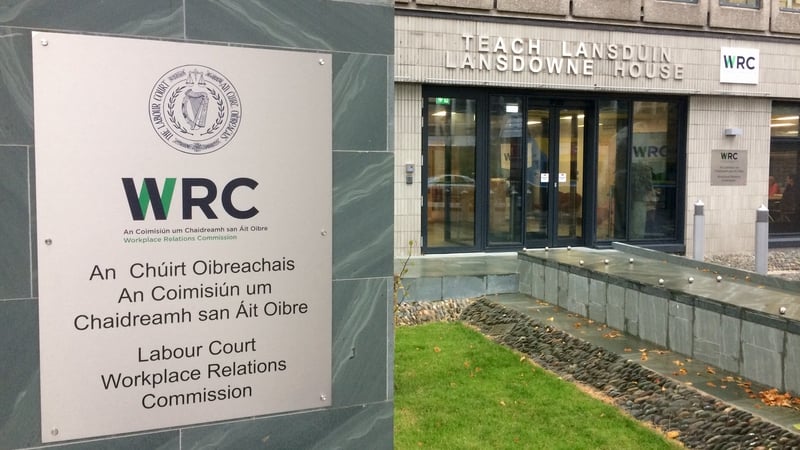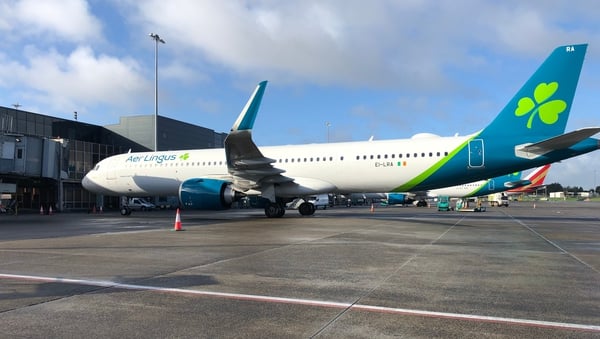Talks on pay restoration for workers in Section 39 organisations, such as hospices and disability organisations, have been adjourned until 2 October.
The talks took place at the Workplace Relations Commission in a bid to resolve a pay dispute involving 12,000 workers in HSE-funded health and social care agencies.
Speaking after the adjournment, SIPTU Health Division Organiser Paul Bell described today's engagement with the Government side as constructive.
He said the management side had accepted the principle of pay restoration for Section 39 employees, and the parties are now interacting in how to achieve that in a structured manner over a period of up to three years.
Sources indicated that one possibility raised was that the Section 39 employees would be awarded a 1% increase from January 2019 which would be backdated to 1st October 2018.
Sources on the management side also described today's engagement with unions as constructive.
They said progress had been made regarding an understanding of how the pay restoration issue should be addressed, though a number of issues remain to be ironed out.
Asked whether pay proposals had been put forward the sources said that a number of ideas had been "tossed around" but nothing had been firmed up.
Asked whether there was any prospect of retrospection for Section 39 workers, the management sources said it was "not on our agenda" and would be unaffordable.
Govt accused of dishonesty over Section 39 workers pay
The Government has been accused of being dishonest over pay restoration for Section 39 workers.
Fianna Fáil leader Micheál Martin has warned such organisations would have to cut services if funding was not provided to facilitate pay restoration for employees.
Taoiseach Leo Varadkar said Government funding provided to Section 39 organisations varied and it was a complicated problem to solve.
He also said that funding to Section 39 organisations has increased.
"The money paid to Section 39s, taken on aggregate, has increased, every year for the last couple of years," Mr Varadkar said in the Dáil.
He also said the Government wanted to include funds in the estimates to address the issue, but agreement had to be reached on this.
Mr Martin claimed Mr Varadkar's response "reeked of dishonesty".
A strike of around 6,000 SIPTU members in the so-called Section 39 bodies which was due to take place today was deferred to allow the talks to take place.
The staff in the Section 39 agencies, including some hospices and residential care facilities for vulnerable people, had their pay cut during the economic crisis in line with Government employees, despite the fact that they do not legally count as public servants.
However, when phased pay restoration for public servants commenced under the Public Service Stability Agreement, Section 39 workers were excluded.
Many of the Section 39 bodies argue that they cannot restore pay cuts without hitting services because their funding allocation from the Health Service Executive has not been increased.
The HSE in turn argues that it has not been granted expanded budgets from the Departments of Health or Public Expenditure and Reform to permit higher allocations to the Section 39 agencies to cover pay rises.
In February, SIPTU deferred a threatened strike to permit a review of Section 39 bodies to take place.
That review found that the average pay cut had been around 4.66%, and that full restoration would cost €68 million.
The Government is expected to submit a proposal for restoration, though the situation is complicated by the fact that various bodies have both cut and restored pay at different rates.
The Government also believes that some can afford to increase their workers' pay without additional funding allocations.
Informed sources said the Government was anxious to resolve the row, but ruled out any restoration for affected personnel before the New Year at the earliest.
However, they floated the possibility that any 2019 payment might be backdated for a portion of 2018.
They also acknowledged that the disparity between pay in the public sector and the Section 39 bodies for staff performing the same duties was causing recruitment and retention difficulties in some areas dealing with extremely vulnerable clients.
SIPTU Health Division Organiser Paul Bell said that his members were anxious to avoid industrial disruption which could prove difficult for vulnerable patients.
However, he cautioned that the strike has only been deferred and if the Government does not meet his members' demands, it will proceed.
Other unions who will attend the talks, including Forsa, are currently balloting their members for industrial action over the row.
Additional reporting Edel McAllister






